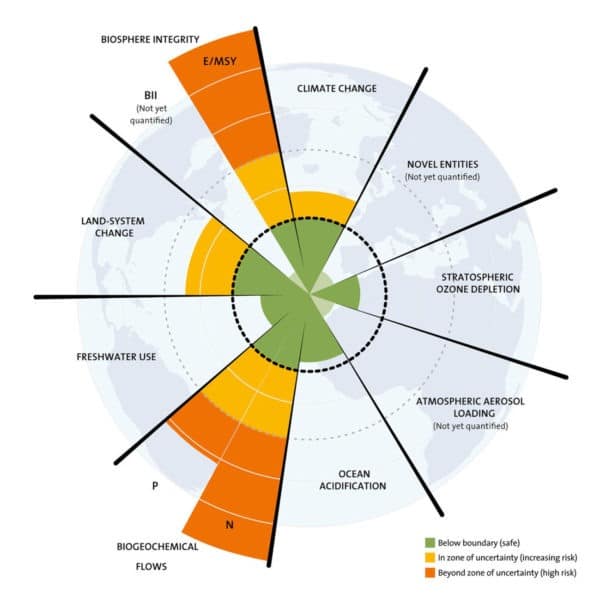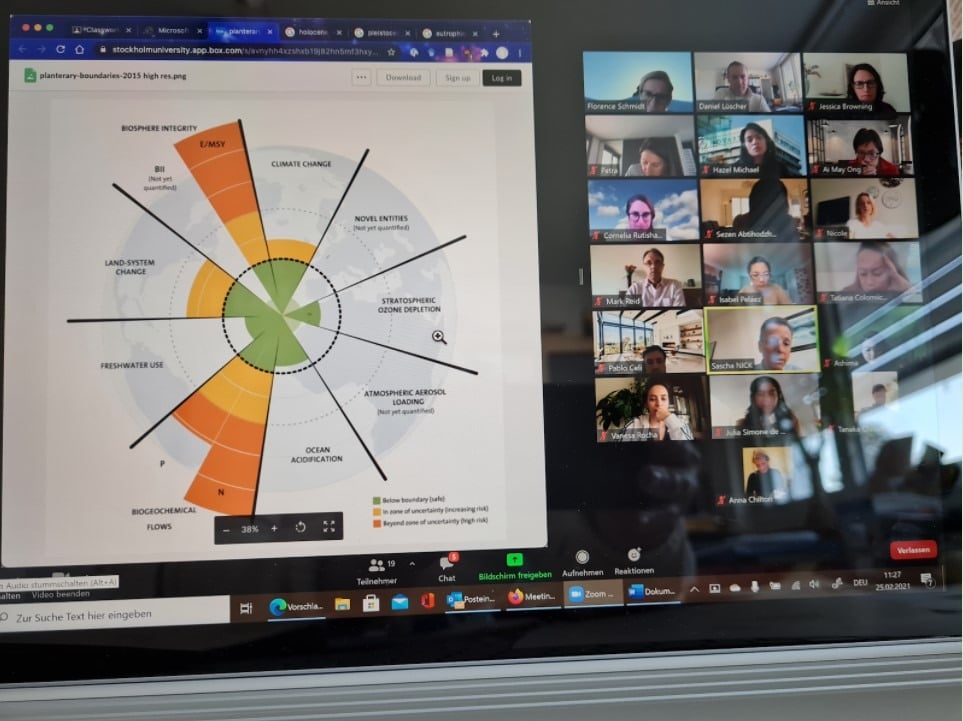
As a teacher and learner myself, I spend much time reflecting on why and how to adapt the way we teach and learn about sustainability.
Sustainability is both an interdisciplinary academic approach and an area of practice, and both have changed significantly in the past 10 years.
The main theoretical frameworks around Planetary Boundaries, the Anthropocene and the Great Acceleration, Biodiversity and Ecosystem Services, climate and energy have all made major progress in terms of robustness and their interconnection. Systems thinking, which itself has a 60-year history of contributing to understand non-linearity and other non-obvious aspects of sustainability, is used much more broadly to connect the interdisciplinary approaches. Even the essential area of human needs, which hasn’t seen much activity since the publication of major theories of Max-Neef and Doyal & Gough in 1991, has recently attracted much attention and publications. What this all means is that we know very precisely the causes of our environmental degradation, and associated human deprivation and lack of resilience.
In the area of sustainability practice, much has changed as well: no credible organization is questioning the need to become more responsible, reporting has become mainstream with near-universal corporate CSR reporting, broadly used standards like GRI, and a wide range of product and company certifications of varying quality, as well as numerous initiatives and commitments. Beyond companies, especially including governments at all levels, scientists, and intergovernmental organizations, we now have a widely adopted common language: the SDGs. Issues related to sustainability are frequently discussed in politics, even though far-reaching decisions remain rare.
In such a context, teaching and learning needs to adapt to the deeper, more complex and more interconnected knowledge, including the much more varied and substantial experience of participants, especially in a highly diverse school like BSL.
Here is a selection of what I personally use in my teaching:
- Use the pre-course assignments for participants to review theoretical knowledge, and focus the limited class time on interdisciplinary application, whenever possible in teams
- Engage participants to share their rich personal and professional experience, then connecting them to the frameworks discussed in class, and solutions developed in each team
- Most importantly, challenge and help participants transcend assumed constraints of systemic change, allowing the whole class to collectively construct perspectives for a desirable future.
In the spirit of such collaboration, this blog post has been reviewed and completed by E/MBA / DAS participants of our latest sustainability class. Additionally, we’d like to quote their first-hand experience:
Mark Reid: When a class is made up of participants from a diverse range of business backgrounds who each possess rich experience, the value of class discussion and interaction is immensely important and rewarding. Our classwork was a forum of open discussion on the topics presented by Sascha, and this offered a rich learning experience.
Florence Schmidt: The course is like a trip. You start with the preparation which is crucial to be at the same level of information. Then, you are invited to discuss, share and challenge your teacher/participants, without any power point, you follow a red line and you reach the course goals. Very powerful!
Jessica Browning: With so many ongoing developments in sustainability, it is essential that we can use all the theories practically and build upon our sustainability mindset. Being with classmates from different nationalities, cultures and industries, helps us practice this in breakouts with real time feedback and perspectives. It feels like you’re in an innovation start up lab trying to resolve all these challenges collectively.
Daniel Lüscher: Here we go. We discussed ways to return within the planetary boundaries. BSL students are part of the solution and our professor gives us the mental tools to walk this long, important, and sustainable journey.

Hazel Michael: Sustainability has become a mainstream topic for many companies. However, the lack of understanding and ideology of what makes a product/service sustainable is still evident. This course is a direct reflection of what our society needs in order to make sustainable choices. It informs on the global crisis we are facing today and highlights the core issues of why they occur in the first place. Hence, I found this course to not only expand my understanding of what sustainability means but also encouraged me to reflect on my personal choices to support a better world.
As a reader, please contact me and share your thoughts. Teaching and learning is a process, always changing, and hopefully becoming more relevant to today’s reality of sustainability learners, which presumably includes each one of us.

BSL Professor
Main image source: Stockholm Resilience Centre
